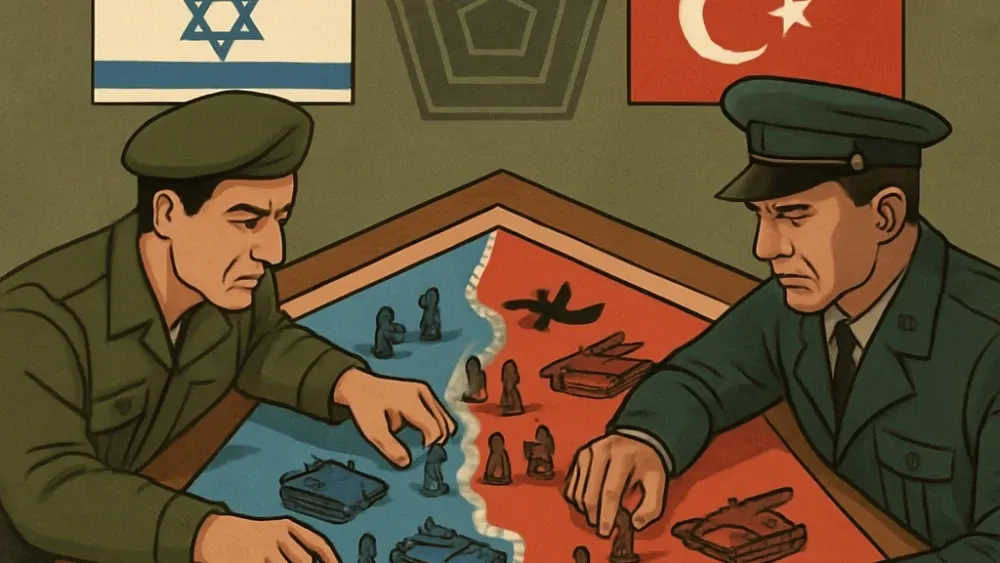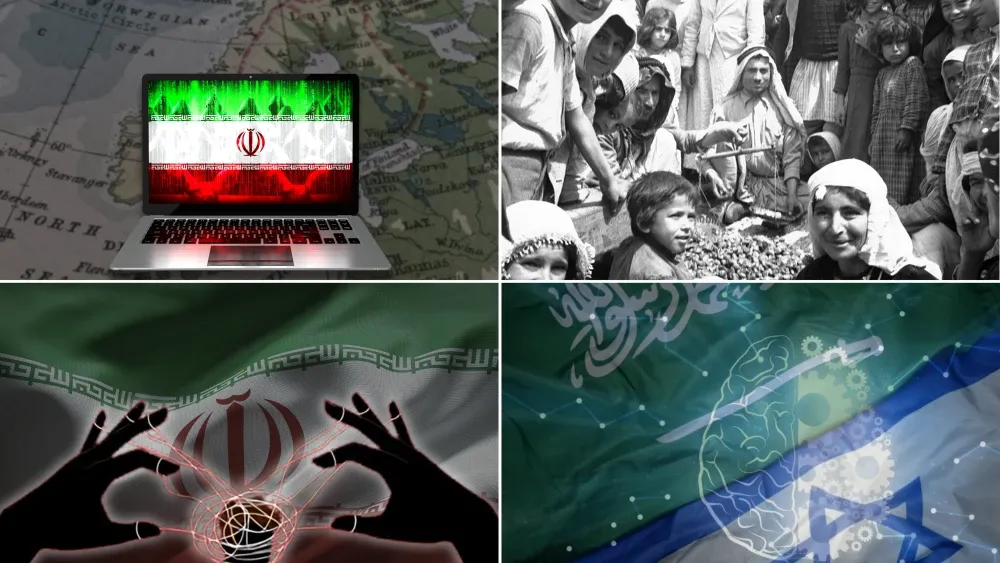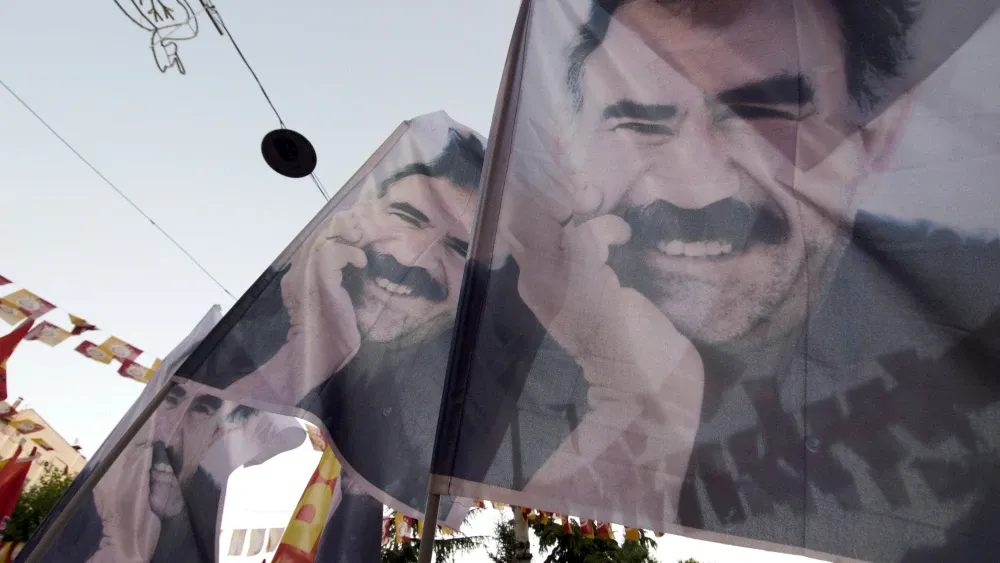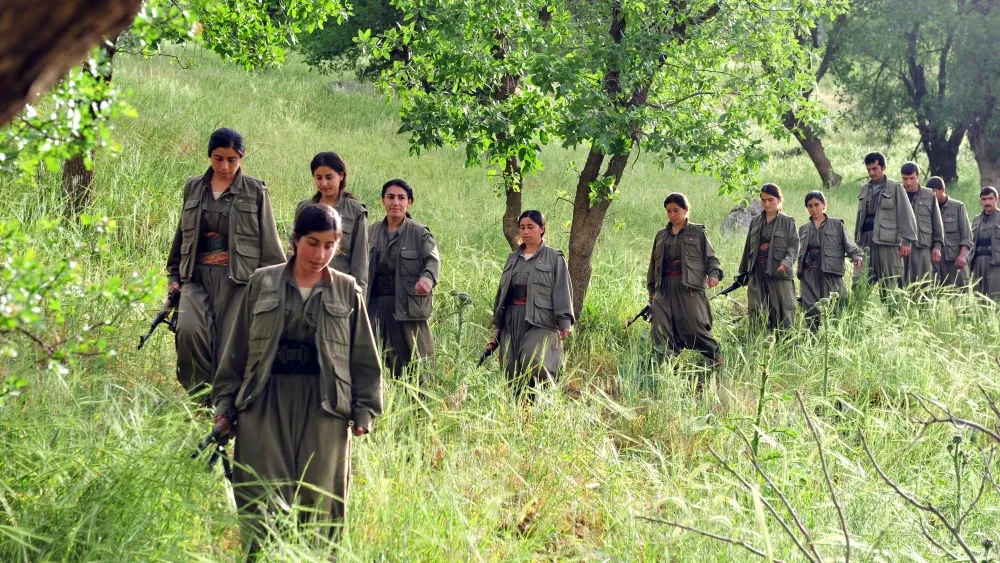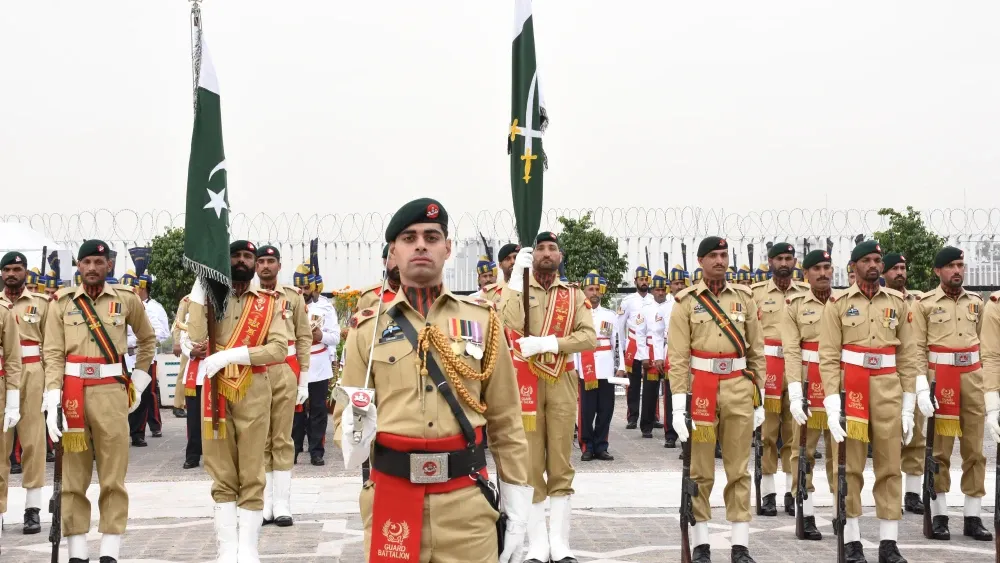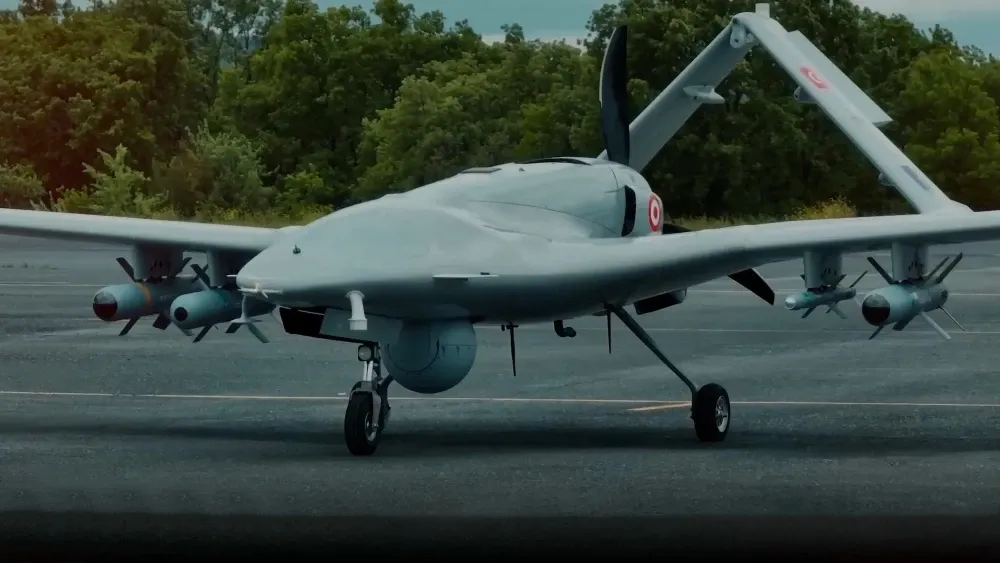| ||
 | ||
| Neo-Ottoman Turkey Threatens Israel and Regional Stability; Summer Middle East Quarterly By Winfield Myers ● Jun 02, 2025 Smart Brevity® count: 7.5 mins...2012 words MEF has for years documented Turkey’s transformation from ally to enemy under its Islamist President Recep Tayyip Erdoğan. This issue features six articles examining Turkey’s growing threats—and some weaknesses. Jonathan Spyer analyzes Turkey’s expansionist dreams and sees a Turkish-Israeli contest as a “central regional dynamic” in the making. Michael Rubin warns that war between Turkey and Israel may be in the offing, and that the U.S. should war game the conflict to be ready for any eventuality. Additional articles place the Kurdistan Workers’ Party’s (PKK) dissolution in context and speculate on what it means for the future of Qandil province in Iraqi Kurdistan, where control of over 60 Kurdish villages is now in question. Two articles dissect Turkey’s alliance with Pakistan, especially in light of last month’s India-Pakistan conflict. Turkey spreads Islamist extremism wherever it goes, including South Asia. Yet its once-heralded military drones proved utter failures, as India either destroyed them or they failed to reach their targets. Such are the fruits of nepotism and corruption, writes Michael Rubin: innovation stops where internal approval is guaranteed. The Summer Middle East Quarterly is now out featuring articles on AI’s potential to smooth relations between Israel and Saudi Arabia, the slaughter of Alawites in Syria, Iranian operatives in Scandinavia, and the Islamic Republic’s use of psychological warfare. Book reviews abound as well. | ||
Neo-Ottoman Power: Erdoğan Positions Turkey as Israel’s Main Middle East ChallengeTurkish President Recep Tayyip Erdoğan's aggressive regional maneuvers pose a direct threat to Israel's security and strategic interests. Why it matters: Erdoğan's support for Islamist factions and his antagonistic stance towards Israel could destabilize the region, forcing Israel to face heightened security challenges.
Driving the news: Erdoğan's latest meeting with Syrian interim President Ahmed al-Sharaa showcases Turkey's intent to strengthen anti-Israel alliances.
The big picture: With the potential reduction of U.S. influence in the region, Israel must brace for increased Turkish aggression.
What's next: Israel needs to fortify its regional alliances and strategic partnerships to counter Turkey's growing influence.
To read the full article, click here. | ||
The U.S. Must War-Game an Israel-Turkey ConflictWar games suggest that a military conflict between Israel and Turkey, once unthinkable, is now a possibility within a decade. Why it matters: Turkey's increasing alliance with anti-Israel factions and its military ambitions pose a direct threat to regional stability and Israel's security.
Driving the news: Turkish President Recep Tayyip Erdoğan's support for Hamas and aggressive regional policies challenge Israel's security landscape.
The big picture: A conflict could involve complex military engagements, including missile strikes and naval battles in the Eastern Mediterranean.
What's next: A war between Israel and Turkey is no longer a distant possibility.
To read the full article, click here. | ||
Turkish Cypriots: The Achilles’ Heel in Erdoğan’s Religious Strategy?Northern Nicosia is erupting in protests as Turkish Cypriots boldly resist Ankara’s attempt to impose religious governance, threatening Turkey's regional influence. Why it matters: The mass protests underscore a critical backlash against Turkey's push for Islamization—a direct challenge to President Erdoğan's agenda and a warning sign of Turkey's declining sway in its own backyard.
Driving the news: Over 10,000 Turkish Cypriots, backed by unions and civil groups, are rejecting Ankara's headscarf policy, signaling wider discontent with Turkey's dominance.
The big picture: This resistance could redefine diplomatic narratives, forcing international stakeholders to reconsider Turkish Cypriots as independent agents rather than proxies of Ankara.
What's next: As Ankara grapples with this challenge, the international community must acknowledge and support Turkish Cypriots' fight for autonomy to foster a just and sustainable solution in Cyprus.
To read the full article, click here. | ||
MEQ Summer 2025: Artificial Intelligence Emerges as Key to a Historic Israel–Saudi ThawThe Summer 2025 edition of Middle East Quarterly delves into AI's potential in Saudi-Israel relations, Iran's subversion efforts, and the protection of Syria's Alawites. Why it matters: The analyses provide a comprehensive view of Middle East dynamics, highlighting both innovative collaboration and security threats. Driving the news: Doron Feldman and Ofir Barel discuss AI cooperation between Israel and Saudi Arabia as a potential catalyst for normalization, suggesting a shift towards moderation and innovation. The big picture: Daniel Pipes warns of Sunni Islamist violence against Alawites in Syria, calling for preventive measures against potential genocide. What's next: Magnus Norell explores Iranian intelligence operations in Scandinavia, urging cohesive strategies to counter this threat; Babak Taghvaee advocates for sanctions to curb Iran's psychological warfare. The edition also features critical book reviews and analyses on regional issues. To read the press release and the issue, click here. | ||
What Does the Dissolution of the PKK Mean for the Middle East?On May 12, 2025, the Kurdistan Workers’ Party (PKK) announced its dissolution, urging a shift from armed conflict to the potential for democratic politics and Kurdish rights. Why it matters: This pivotal moment could redefine Kurdish-Turkish relations and affect regional dynamics, challenging Turkey's expansionist policies under the guise of counterterrorism.
Driving the news: The PKK cites regional changes, like Syria's regime fall and Iran's retreat, as reasons to pursue peaceful resolutions.
The big picture: The PKK's dissolution could create space for illiberal movements to rise, with some Kurds disillusioned by Western democracies' perceived hypocrisy.
What's next: Turkish President Recep Tayyip Erdoğan likely views PKK disbandment as an opportunity to curb regional transformation and reinforce his anti-Israel posture.
To read the full article, click here. | ||
Qandil’s Uncertain Future After the PKK’s DissolutionThe decision by the Kurdistan Workers’ Party (PKK) to disband raises questions about the governance and stability of Qandil, the mountainous region in Iraqi Kurdistan along the Turkish border where the PKK has headquartered itself since the late 1990s. Why it matters: The PKK's withdrawal opens a power vacuum in Qandil, potentially igniting competition between Kurdish political parties and altering regional dynamics.
Driving the news: Residents of Qandil, accustomed to PKK-led democratic governance, face uncertainty as the Kurdistan Democratic Party (KDP) and Patriotic Union of Kurdistan (PUK) vie for influence.
The big picture: The dissolution could shift the balance of power, with Baghdad eyeing greater control over the region, affecting the Kurdistan Regional Government's autonomy.
What's next: The international community must closely monitor Qandil's evolving situation, supporting peaceful governance transitions while acknowledging the complexities of regional politics.
To read the full article, click here. | ||
Turkey Comes Out as Pakistan’s AllyTurkey's military support for Pakistan during the May 2025 conflict with India marks a dangerous escalation, fueling instability in the region. Why it matters: Turkey's actions reveal its intent to undermine India's security and bolster Islamist extremism, echoing its disruptive involvement in the Middle East.
Driving the news: Ankara's supply of advanced drones and military advisors to Pakistan during the conflict indicates a calculated move to strengthen its influence in South Asia.
The big picture: Turkey is employing a strategic playbook of supporting Islamist factions to extend its reach, mirroring its tactics in Gaza and beyond.
What's next: India must urgently recalibrate its foreign policy to counter Turkey's provocations and secure its national interests.
To read the full article, click here. | ||
Is Turkey’s Arms Industry a Loser in the India-Pakistan War?Turkey's efforts to position itself as a military export power face setbacks as its flagship Bayraktar drones falter on the battlefield. Why it matters: The underperformance of Turkish drones, notably in India-Pakistan conflict and other regions, challenges Turkey's credibility as a top-tier defense supplier.
Driving the news: Turkish drones failed to perform effectively in recent conflicts, including India's interception of Pakistan's Bayraktar drones.
The big picture: Turkey's reliance on nepotism, with Baykar led by Erdoğan's son-in-law, compromised product quality.
What's next: As Turkey grapples with these challenges, countries must reassess their defense partnerships and investments in Turkish technology.
To read the full article, click here. | ||
| Thank you for your support and for relying on the Middle East Forum to help make sense of competing and often contradictory headlines. If you enjoyed this issue of the Dispatch, please forward it to a friend. We invite you to use the comments feature to let us know your thoughts on this issue. Sincerely, Winfield Myers | ||
| Was this edition useful? Your email will be recorded and shared with the sender | ||
| Powered by | ||
| ||


